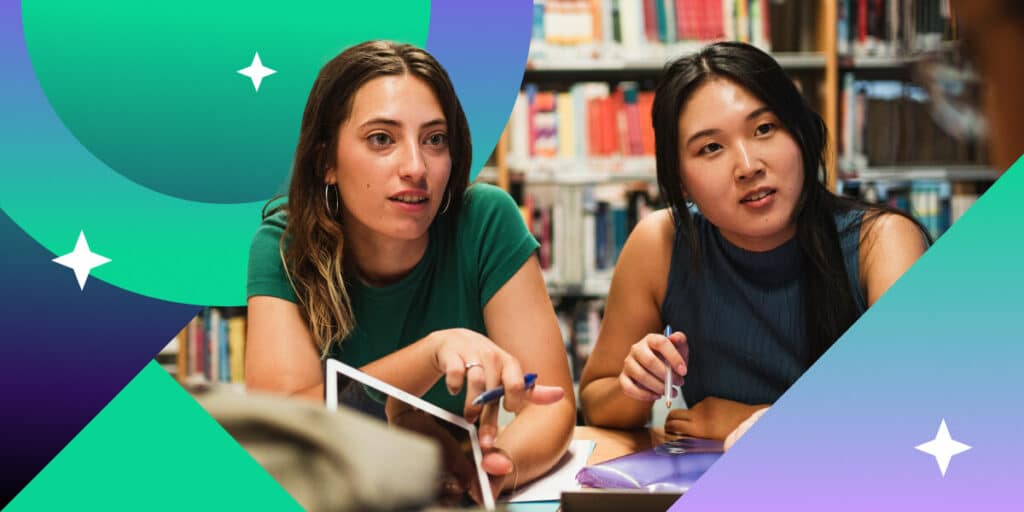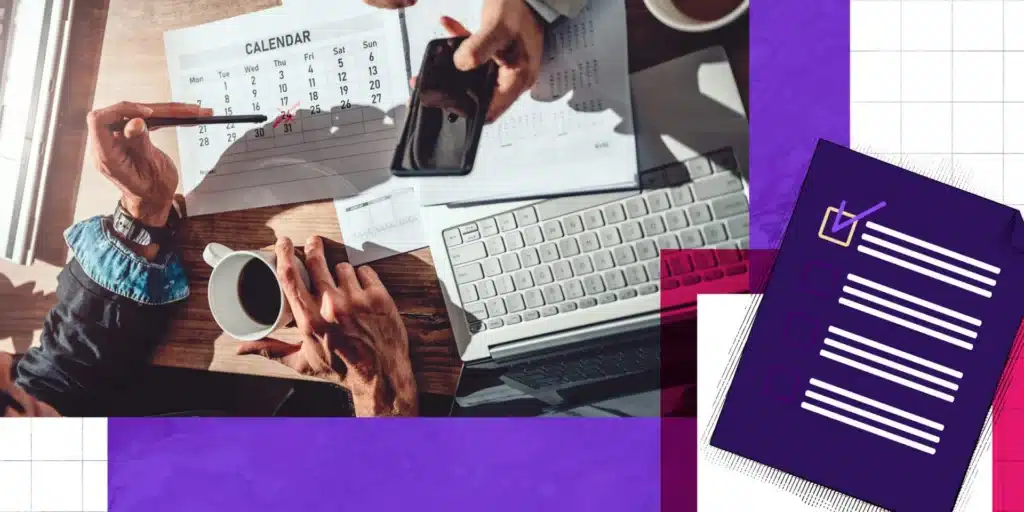Congratulations! As you close out this academic year, we hope you can look back at the past two semesters with immense pride. Between grading, teaching, researching and personal commitments, the impact you’ve had on your students might fly under the radar. That’s why we sat down with eight student leaders and asked them what they enjoyed most about their academic journey this past year. Here’s what they had to say.
→ Webinar: Changing Student Lives Through the Power of Connection
1. Bridging the gap between the classroom and the workplace
How does your course material prepare students for their future careers? Today’s learners appreciate the value of real-world, applicable learning that allows them to explore their own passions. Danny Brodson, an Aviation Management and Finance major at The Ohio State University, applauds his professor Ty Shepfer for connecting students to campus resources that get them one step closer to their dream roles. “Before class even began, Ty invited me to an alumni session with Boeing. He knew that my passion for aviation would be perfect for this guest speaker. That meant a lot to me,” says Brodson.
Alumni and teaching assistants play an equally important role in preparing students for the next chapter beyond the classroom. Steven Gross, a Finance student at Florida State University—and a learning assistant to professor Stephanie Dillon—takes a community-first approach to student success. For Gross, it’s not just about helping students master chemistry concepts, but also about honing the skills needed for long-term success. “We usually work with pre-medical students, so it’s really about keeping them on top of their STEM courses and helping them prepare for entrance exams such as the MCAT,” Gross says.
2. Offering smaller, interactive lessons over high-stakes tests
It’s no doubt that learners arrive at your course with varying degrees of preparedness. But as these students share, the single, high-stakes exam shouldn’t be the entire story. Lauren Contreras, a Chemistry student at CUNY, Hunter College, in professor Kirsten Grant’s course, appreciates the visual and sensory-rich approach to pulse checks. “Dr. Grant asked students to physically act out the process of how particles attract. It was a funny and entertaining way to better understand the material,” Contreras shares. Lauren D’Entremont, a Biology major at the University of Massachusetts, Lowell, also praises her Forensic Psychology professor Neil Shortland for making learning more experiential—and Top Hat’s click-on-target question was partly to thank. “He would show us a crime scene and ask us to click where we thought the perpetrator entered. It was appealing because it switched things up compared to full-on lectures,” D’Entremont shares.
Making learning fun and interactive during lectures is a great start. And students like Ricardo Cardenas, a Public Health major at the University of Texas, El Paso, enjoyed how media, discussions and poll questions were peppered throughout his assigned textbook in Top Hat. As a member of Generation Z, Cardenas appreciated reading bite-sized snippets versus walls of text. “It doesn’t feel like a huge PDF. The material is presented in a way that’s not menacing—it feels like you’re reading something from the New York Times or The Washington Post,” he says.
3. Offering in-depth, personal feedback early on
Feedback. Does the word inspire you or make you sweat? No matter what form it takes, feedback from student to instructor and from student to student makes a huge difference in the learning experience, as Laila Hayes, a Biology student at Florida State University, found in professor Sam Martin’s course. “She would ask us if she could improve in any areas of her teaching. Being so open to our concerns and issues made me feel like she actually cared about how we can learn better,” says Hayes.
It’s not lost on students when faculty go the extra mile to help them hone their study skills. William Hidalgo, an Aerospace Engineering major at the University of Central Florida, recalls how his professor broke down the stigma that can come with attending office hours. “We used this time to practice homework in front of our professor who gave instant feedback and could confirm whether the knowledge from readings stuck,” he says.
Letter grades only go so far in helping students engage deeply in their learning. But when instant, guided feedback is introduced, students are better equipped to close their knowledge gaps. Alena Lateef, a Neuroscience major at Wilkes University, shares how professor Amy Bradley uses Aktiv Learning—a platform that helps students visualize chemical structures, dimensional analysis and more—to give students a chance to identify areas they may need help with in advance of larger tests. “Aktiv gave me a great foundation for organic chemistry. We were able to practice and get feedback as well as get opportunities to fix our answers,” Lateef shares.
At Top Hat, we thank you for all that you’ve done in this academic year to support student success. Check out our talk, “Changing Student Lives Through the Power of Connection,” to hear from best-selling author Dr. Adam Sáenz on how to make learning more valuable and inclusive. Learn more here!


